Bokhara Lashi is an amazing esthetician and a close friend of Annmarie Skin Care. Aside from writing for our blog, she also uses our products at her holistic spa, Embody Zen. She is based out of San Francisco, CA—check her out if you're in the area!
Last month, we had our community submit questions for Bokhara via email. We compiled a few that were asked multiple times, in one way or another. Many thanks to Bokhara for sharing her expertise.
Be sure to sign up for our email list for the chance to have your questions answered.
Ask an Esthetician
Thank you for taking the time to write in a bunch of questions! Here are my answers to the top 5 selected! I hope they follow offer insight and clarity. Enjoy!
As my skin becomes more mature, I find the “glow” definitely diminishing. I would love some suggestions to help restore that look.
– Deborah L
Hello Deborah, great question! “Glow” in the skin is fundamentally achieved with two components in the skin being optimal, oil + water. When these are at optimum your skin will look dewy and hydrated, giving you an overall glow.
The way to achieve optimal levels for these varies per person but the fundamentals are the same.
What Are the Best Foods For Your Skin Type? Eating for Healthy Glowing Skin
Optimal Oil Levels
Nourishing your skin with the correct type of moisturizer will ensure your skin oil is in balance. Selecting the correct moisturizer for your skin type and allowing your skin oil production to respond and balance can sometimes be a process – so be patient or get recommendations from a professional you trust that knows your skin to more quickly find your perfect match.
Another component to this is making sure to exfoliate the skin 1 – 2x per week (depending on skin types, condition, and needs, the recommendation varies). Exfoliation removes any dry or dehydrated skin cells from the upper layers of your skin. If these are not removed, your moisturizer will be less effective because it won’t absorb into the layers of the skin.
Eating for your glow
Also, it is important to note that external oil is not the only way to boost your skin’s dewy complexion. Healthy fats and oils in the diet boost your skin from the inside out. Foods like Avocado, Almonds, Cashews, Sunflower Seeds, and Walnuts.
Check out the article Best Foods for your Skin Type for more food ideas.
Optimal Water Levels
The skin’s cellular matrix contains an ingredient called Hyaluronic. This is also found in your joints to keep them lubricated as well. This water-loving ingredient holds 1,000x’s its own weight in water and it is what binds water to the skin to keep your complexion glowing.
Sun and time decrease the levels of Hyaluronic in the skin so that your skin has a harder time holding onto water. With water loss and evaporation, your skin gets dull, waxy or has a sallow complexion. This is especially a challenge in the winter months due to lower humidity in the air and central heating indoors.
how to counteract water loss
You can counteract your skins water loss a few ways. The most obvious suggestion is to spritz the skin. I especially love giving my skin a hydration boost midday with a few sprays of the Neroli Toning Mist because it also contains aloe which acts as a protector that prevents water loss in the skin. However, you can fill a little spray jar with rose water or pure water if you’d like to keep the routine low cost.
Another way to boost the hydration of the skin is to increase the moisture in the air around you. Use a humidifier, steam a pot of water on the stove or use a misting diffuser. These will add moisture to the air and help keep your skin hydrated from the outside in.
Skin care products containing Hyaluronic Acid or Tremella Mushroom both bind water to themselves and hold that moisture within your skin. Annmarie Skin Care's Anti-Aging Serum or Probiotic Serum with Tremella both boost the skin's hydration and enhance the overall glow of the skin.
To learn all about the types of serums and select the one that meets your skin needs check out The Ultimate Guide to Face Serums.
correct exfoliation
A final suggestion is to check in with how much you are exfoliating. When you exfoliate the skin too much it breaks down the acid mantle and makes it harder for your skin to hold onto water moisture and absorb your nourishing ingredients.
So, do you use a facial brush, scrub cloth, silicone mitt or another device daily? Try moving to every other day or aim for 2x/week and see if you notice a boost in your skins’ glow. Note that exfoliants aren’t always obvious, they hide inside serums and products labeled as AHA, BHA, and Enzymes.
Finding balance
These are dissolving the bonds between the skin cells, creating skin cell shedding and bringing younger skin cells to the surface (which can be great if not overdone). If you are using these daily and you are using a scrub or cleaning device, you might be overdoing exfoliation and your skin will have a harder time holding onto water moisture.
Striking a balance with exfoliation, hydration, and oil is the key and when you find the balance your skin needs it will reward you with the glow you are seeking!
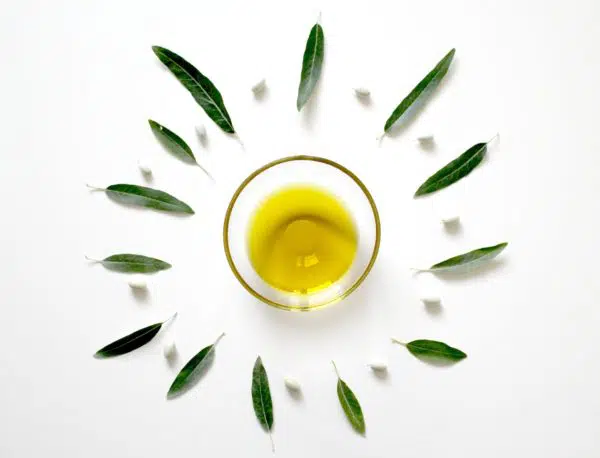
Is it true that putting oils on my face will make my pores larger? (My skin is dry and sensitive after having my son and it's difficult to stay moisturized all day.)
– Colette T
Hi Colette, great question! I have a client who just asked me this recently. The short answer is no. The longer answer is – oils vary dramatically and pores don’t technically get larger or “disappear” as some products claim. Let me explain…
the science behind it
The molecular size of oils are diverse and will affect the skin in different ways. Some are large and can clog pores in acne prone skin, some oils are so small molecularly that when you apply them they seem to disappear into the skin completely.
So, “oils” won't make your pores larger. It is true that some oils, that are not compatible with your skin type, can clog the skin and harden in the pore. When oil is hardened in the pore, your pores will be more obvious looking and this gives the illusion your pores are larger.
Just like, in contrast, when you get a facial and your blackheads are removed, the pores look like they almost disappear! This is the result of the pore no longer being held open with the hard oil filling it. The pore size itself didn’t change, the appearance of it looking more or less obvious is at the heart of what happens.
finding the right oil
So, select a proper oil for your skin without worry. If it is blocking your pores and making them appear larger, then you need to select a different oil.
Since you mention having dry sensitive skin you might be interested to try the Herbal Facial Oil for Sensitive Skin from Annmarie Skin Care. The primary oil in that moisturizer is grapeseed oil, which is recommended for acne prone skin, so you can rest easy knowing it won't break you out or clog your pores.
You may find if you have truly dry skin you will want an even more nourishing oil. If that is the case, the Anti-Aging Facial Oil would be the next level up with sunflower, jojoba and sesame seed at its base (richer oils that dry skin craves).
I do recommend reading The Ultimate Guide to Using Oil as Your Moisturizer for extra information on making the switch to oil as your moisturizer. Enjoy!
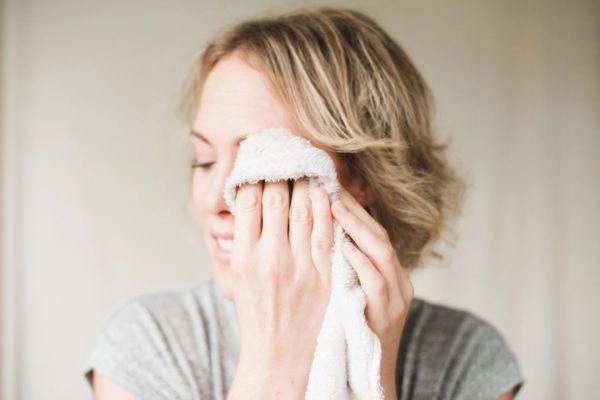
I suffer with absolutely relentless acne, both on the surface type, and the deep and painful kind. My question is this, is there any natural herbs or non-chemical ingredients that I can find in a product that would help with my acne types? To help with the inflammation and swelling? All I ever read online is benzoyl peroxide, salicylic acid and antibiotics. What’s the real way to support my skin?
– Emma
Hello Emma, thank you for your question. This is a common concern my organic facial guests seek help with. Education of natural options for acne are shockingly not as widespread nor recommended by dermatologists and this leaves so many assuming there are not natural solutions.
Rest assured you have options clearing acne without using benzoyl peroxide, salicylic acid, and antibiotics!
holistic skin evaluation
Without seeing your skin, and getting into all the questions (so many!), I honestly can’t give you definitive suggestions for your skin. I ask about your acne history, what you’ve tried, your diet, your vitamins, your habits – all the things – in a treatment.
Once this is known and treatment is given, the state of your skin is felt and more deeply understood, then recommendations can be made. As an example, I recently had a client who has been seeing me for treatments for a year. She came in last month with cystic acne all over her face but she had never had a pimple during the whole previous year (her concern has been aging and rosacea.)
It was after numerous questions and through my understanding of her history blended with the holistic approach toward skin care that it was obvious to me her breakouts were from a new supplement she started. Sure enough, we did a healing facial treatment, she stopped the supplement, kept her home care routine the same and her skin cleared in exactly 10 days after her facial.
I am sharing this story to explain that it isn’t always the addition of products that heal the skin. Sometimes it’s the removal of something and most importantly there isn’t one fit all solution for acne, natural or not.
natural options
However, I will share a set of information so that you have some options beyond the 3 you mentioned you’d like to avoid (and I agree you should avoid). I caution you not to try anything without professional guidance, try only 1 thing at a time (so you know if its working or if you are having a reaction to it) and most importantly be gentle with yourself (inflamed skin is fragile).
A wonderful alternative to salicylic acid is white willow bark. This ingredient is the gentler cousin and natural alternative to salicylic acid, which helps gently exfoliate. One major difference between the two is that white willow bark dissolves in oil and salicylic acid dissolves in water or alcohol, so the latter can lead to very dry, red, and irritated skin.
This is the primary difference I believe that makes white willow bark a much better solution for skin. Being dissolved in oil makes the application more gentle and minimizes side effects while nourishing and helping heal the skin.
supporting your skin through food
Another solution for inflamed skin is an anti-inflammatory diet or one specific for your skin type. You can check out the best foods for your skin type to discover foods to eat and avoid in order to support your skin staying clear and in balance with support from your diet.
ingredients to watch for
Essential oils are powerful extracts that can help with numerous skin concerns. The following essential oils are regularly formulated in carrier oils for acne-prone skin: Thyme, Rosemary, Rose, Lavender, Tea Tree, Clary Sage, and Juniper Berry. Seek these within natural skin care toners, hydrosols and serums to receive their benefits and support your skin.
The last ingredient is kindness. Be gentle with your skin. When it’s red, inflamed and battling acnem it is hurting and needs care that supports its healing process. Too often we pick at the skin and seek to “get out” the clogs, but more damage and scarring is a result.
Home extractions rarely help clear the skin. Try your best to avoid picking at breakouts and focus on feeding your skin healing and balancing ingredients (like the ones listed here) instead.
I hope these natural options for skincare speed your journey to calm, clear and balanced skin.
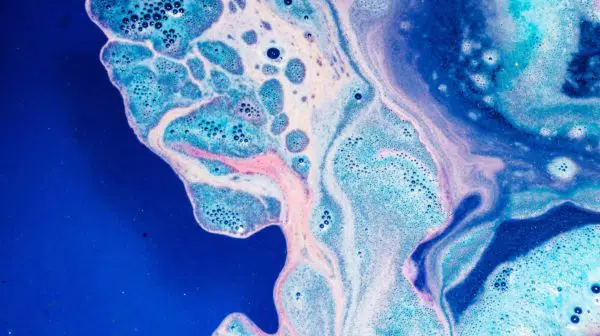
What are the top three ingredients to avoid when choosing products for your skin care routine?
– Stephanie
Hello Stephanie, only three? That feels near impossible to answer. Sadly, there is a long list of ingredients to avoid. The skin care industry has been full of chemicals that are not good for our bodies for many decades.
With the rise of the green movement, push for organic certifications and the launch of the public awareness platform EWG Skin Deep (Environmental Working Group) more natural products have been entering the market and with it a long laundry list of ingredients to avoid.
So, in addition to my listing 3 ingredients I always avoid I will share 3 suggestions to empower you when selecting skin care products.
AVOID:
- Parabens (specifically propyl-, butyl-, isopropyl-, and isobutyl- parabens)
- Triclosan (also triclocarban)
- Formaldehyde (note that use of this has declined but there is a list of “Formaldehyde releasers” which slowly develop Formaldyhyde within the bottle over time that are to be avoided – Bronopol, DMDM hydantoin, diazolidinyl urea, imidazolidinyl urea and quaternium-15.
SUGGESTIONS:
I encourage you to find companies like Annmarie Skin Care and others that have a solid dedication to purity, integrity and results with proof of their commitment proof through certifications like Madesafe, so you can trust them to include only safe ingredients.
Read the label
Look up product ingredients that you don’t know in order to understand what you’re putting on your skin. Almost every ingredient is online and we can determine its possible concern or its benefits with a quick search.
Ingredient profiling is one of my specialties so I can look at a product ingredient list and immediately know how it will affect the skin and if it contains a harmful chemical. I don’t expect everyone to get this level but if you wonder if your products are ok you can always look up ingredients.
look for a full ingredient list
Lastly, this might seem simple but, support brands that proudly display their full ingredient list online, not just “active” or “featured” ingredients. When companies neglect to put their full ingredients online it is a red flag to me. Every time I have written a company, to get a full ingredient list because it wasn’t shown online, I discovered they use ingredients I would personally avoid.
I know it is not a simple answer but I hope this offers you more insight that helps you select healthy products that meet quality standards. Reach out if you’d like assistance greening your skin care. I am here to help.
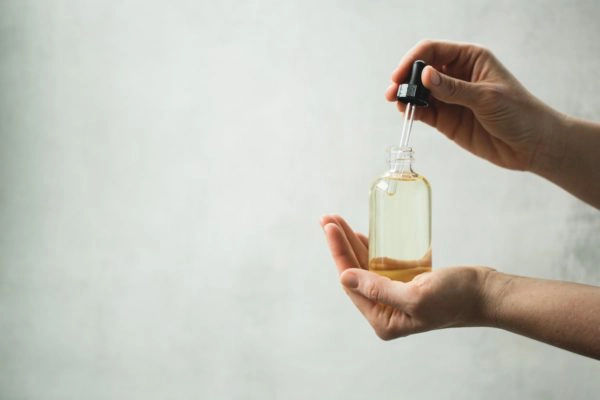
As a man, I just really am not at all educated about my skin and what I need to do to keep it healthy. What are the best resources to learn about how to take care of my skin? If I wanted to start a daily skin care routine, what would that even look like?
– Nick
Hello Nick, thanks for your question! You are starting in the best place – asking yourself how to care for your skin! The first thing you can do is take a skin care quiz to determine your skin type. Then you will know the products appropriate to use in your daily care steps to keep it healthy.
skin fundamentals
The fundamentals of a skin care routine include Cleanse + Tone + Moisturize + Protect (SPF).
In the AM + PM clean the skin, rinse off cleanser; spray toner and apply moisturizer. In the morning, add sun protection after moisturizer.
After you have the fundamentals of your routine you can add other steps of exfoliation, serums or masks to enhance your skincare ritual to meet specific goals for your skin if you’d like.
skin care resources
As for resources, unless you have a passion for skin care and want to learn everything from scratch yourself, the best resource for learning to take care of the skin is a licensed Esthetician, preferably one committed to a holistic or organic approach. Going to a professional will make the experience less overwhelming since there is so much information and so many products to choose from.
If you want to learn yourself, great resources include the Annmarie Skin Care Website (many how-to videos and explanations) and the Annmarie Skin Care Blog (this began a decade ago, truly has a plethora of information and grows daily). You can educate yourself further and learn about product ingredients on EWG Skin Deep (Environmental Working Group).
Lastly, be aware that skin is responsive to overall health in the body so diet, exercise, and sleep are all a part of skin care as well.
Most importantly, enjoy the process to better care for your skin. When it is an addition to your day that you look forward to, it is easier to be consistent and your future self will thank you for the results!
Do you want to see more blog posts like this in the future? Let us know in the comments below, and be sure to sign up for our email list for the chance to have your question answered.
What Are the Best Foods For Your Skin Type? Eating for Healthy Glowing Skin
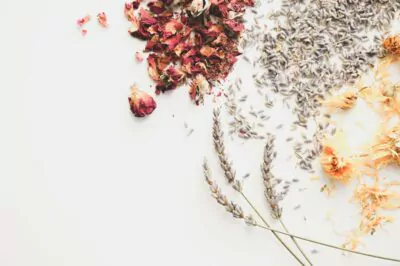


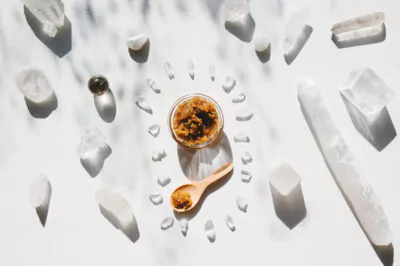



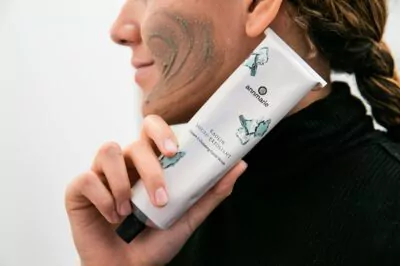
Thank you for your skin care guide.
Please I experienced skin change after my second baby, and the appearance of blackheads.
What should I use to get rid of the black heads.
Thank you.
Thank you for terrific article. Great questions.